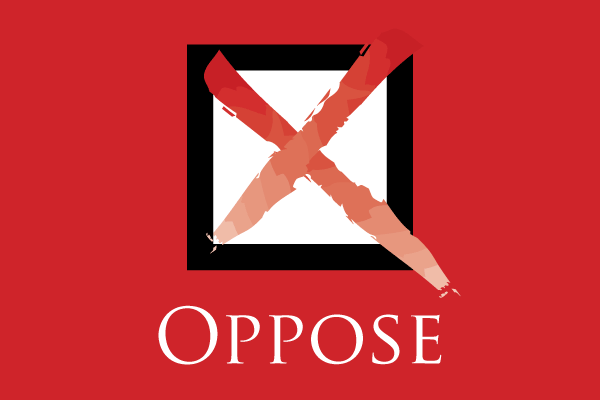
California Chamber of Commerce-opposed legislation imposing burdensome and redundant reporting requirements that could lead to privacy concerns for employees failed to pass a Senate committee this week.
SB 938 (Min; D-Irvine) fell one vote short of passing the Senate Energy, Utilities and Communications Committee on April 23. It was brought up for a vote only, having previously failed to pass the committee on April 16.
Hurts Ratepayers
The bill would have had a negative impact on ratepayers by preventing utilities from bringing expertise to policymaking discussions.
As outlined in a letter to committee members, SB 938 tried to restrict corporations’ ability to recover expenses related to policy engagement by defining those activities as “political influence activity” and prohibiting utilities from considering them among the “above the line” costs they are allowed to recover from ratepayers.
These expenses often are necessary for these organizations to engage in policy discussions, support policies that would benefit the consumer or advocate updates to outdated regulatory provisions. Prime examples of critical engagement and policy discussion areas include demand response, energy efficiency, or California’s programs to help qualifying lower-income customers by providing discounts on electricity or natural gas bills.
Privacy Concerns
SB 938 also would have raised significant privacy concerns by providing unfettered access to certain parties. The required reporting would have included a detailed list of information for each employee, at best creating the potential for competitive disadvantage for the reporting company, and at worst a direct violation of an employee’s privacy.
The bill did not provide sufficient protections for managing access to what could be confidential information. Without the necessary guardrails, the information could easily have been accessed and abused.
The term “political influence activities” was ill-defined in the bill, leaving the matter open to interpretation.
Moreover, the proposed access is unnecessary because the California Public Utilities Commission (CPUC) has the authority to audit records as it sees fit to protect consumers, which is a much more appropriate approach than the unfettered access in SB 938.
The bill made no effort to conform with existing state and federal guidelines established by the CPUC and the Federal Energy Regulatory Commission (FERC).
In fact, CPUC guidelines are designed to layer on top of FERC guidelines to be consistent and create transparency. CPUC has exercised its authority to assess and enforce penalties on multiple occasions, proving that the process in place functions as it should.
Key Vote
SB 938 failed to pass Senate Energy, Utilities and Communications, which has 18 members, on a 9-3 vote on April 22:
Ayes: Becker (D-Menlo Park), Caballero (D-Merced), Durazo (D-Los Angeles), Eggman (D-Stockton), Gonzalez (D-Long Beach), Limón (D-Goleta), Min (D-Irvine), Skinner (D-Berkeley), Wahab (D-Hayward).
Noes: B. Dahle (R-Bieber), Seyarto (R-Murrieta), Wilk (R-Santa Clarita).
No vote recorded: Ashby (D-Sacramento), Bradford (D-Gardena), Dodd (D-Napa), Grove (R-Bakersfield), Newman (D-Fullerton), S. Rubio (D-Baldwin Park).

